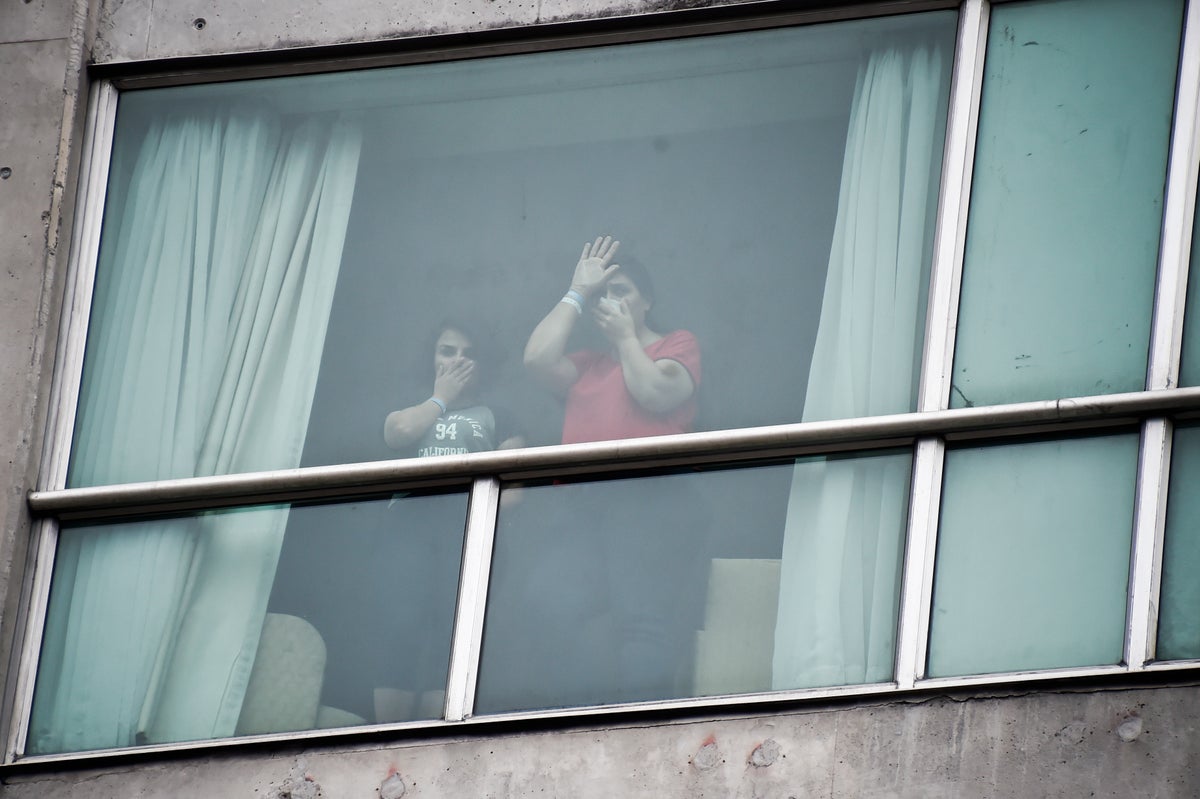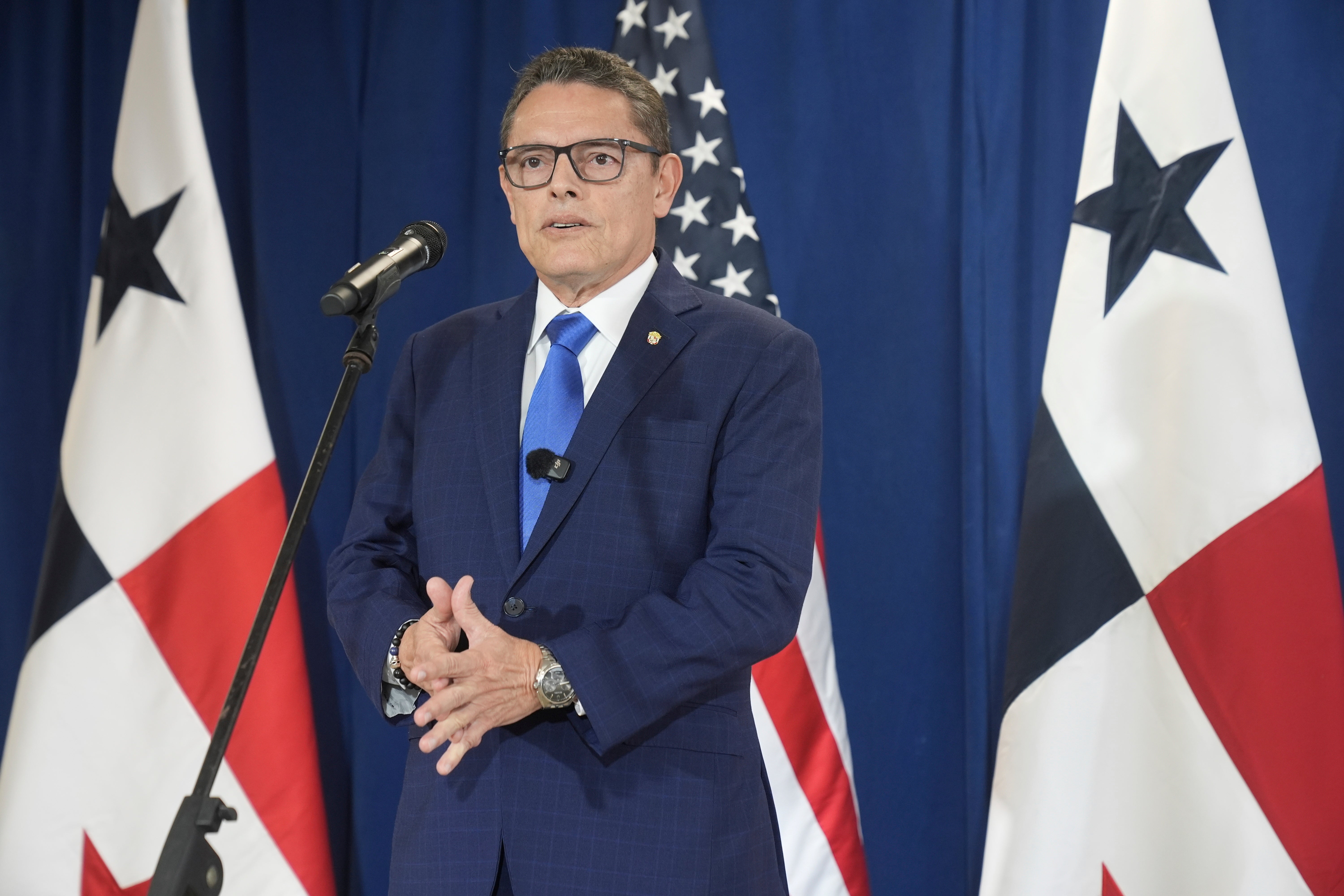
One of nearly 300 deportees from various nations sent from the United States to Panama to await repatriation to their countries escaped from a hotel where they were being held in the capital, Panamanian authorities said on Wednesday.
Panama’s National Immigration Service said in a statement that a Chinese woman received assistance in breaking out from people loitering around the hotel. It said it asked the alleged collaborators to return the woman, warning that they could face human trafficking or migrant smuggling charges.
On Tuesday, some of the 299 migrants detained at the hotel, under police guard and barred from leaving, held up notes from their windows reading things like “please help us” and “We are not safe in our country.”
The deportees, primarily from Asian countries, are in a sort of limbo in Panama after the Central American nation agreed to serve as a transit point for migrants who are hard for the Trump administration to deport directly to their countries.

The migrants include people from Afghanistan, China, India, Iran, Nepal, Pakistan, Sri Lanka, Turkey, Uzbekistan and Vietnam, according to Panama‘s president, Jose Raul Mulino, who has agreed with the U.S. to receive non-Panamanian deportees.
Around 40% of the deportees have said they would not voluntarily return to their countries of origin, raising questions about how long they would be detained in the hotel. The situation has fueled sharp criticism of the Panamanian government, despite its claims, disputed by evidence, that the migrants are not detained.
Security Minister Frank Abrego said on Tuesday that 171 of the migrants have agreed to return to their countries of origin, although he did not provide a specific timeline.
He also noted that an Irish citizen had already been repatriated.
The remaining migrants would be sent to a temporary migration facility near the Darien Gap, a heavily forested region along the Colombian border, until it's clear where they will be sent. The region has historically been used by migrants from Venezuela and other countries to travel north to the U.S.







